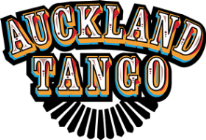Tango Mahi “Tanda of the Week” by Orquesta Tipica Carlos Di Sarli with vocalist Alberto Podesta
1942 “Junto a tu corozon” (“Next to your heart”)
1944 “LLoran las companas” (“The bells cry”)
1944 “La Capilla Blanca” (“The white chapel”)
The 1942 to 1944 recordings of the Carlos Di Sarli Orquesta provided a marked contrast to the highly-accented, prevailing, rhythmic style that had been established by D’Arienzo from 1938 and was then influencing many other Tango orquestas including Di Sarli’s.
Like the D’Arienzo music, the new Di Sarli music adopted rhythms were tailored for tango dancing. The Di Sarli orquesta had almost identical instrumentation to that of D’Arienzo and it retained the D’Arienzo roles for the piano; but often with greater sophistication and subtlety than had been the case with D’Arienzo and his pianists. Di Sarli’s innovations included:
- a generally more melodic and emotional repertoire,
- increased featuring of the orquesta’s vocalists,
- an elevation of the roles of the four violins, and
- a subordination of the roles of the four bandoneons to often provide mainly rhythmic accompaniments.
The first of the three very popular songs I have chosen for the tanda is “Junto a tu corozon” which was one of the hugely successful 1942 recordings of Alberto Podesta singing with the Di Sarli Orquesta when Alberto was only 18 years old. The other two in the tanda were recorded when he had just turned twenty. His voice had a maturity that belied his age and this led to a long singing career over the subsequent six decades during which he featured on the recordings of many leading orquestas and also toured internationally as a soloist.
Podesta’s real name was Alejandro Washington Ale, but he was given a stage name of Juan Carlos Morel by Miguel Calo when he became the vocalist for the Calo Orquesta at the age of seventeen. A year later Di Sarli recruited him but didn’t like either his real name or his then stage name, so convinced him to adopt his mother’s maiden name “Podesta” as a surname and “Alberto” as a first name (for reasons unknown).
On YouTube there is 15 minute, 2009 interview of Alberto Podesta by Alex Krebs that has a number of interesting insights into Podesta’s six decades as a vocalist and a social tango dancer:

